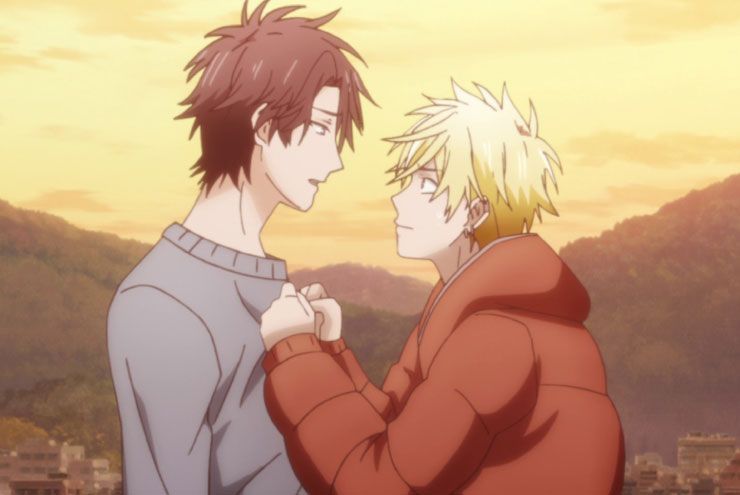By Autumn Rendall
“This is just a phase, right?” “I mean you’re not really queer, you’re dating someone of the opposite gender!” “I’m worried you’d cheat on me.” “You want to have a threesome?”
If I had a dollar for every time I heard one of these phrases—along with countless other cliché remarks—I’d be the richest bisexual woman in history. Well…maybe except for Angelina Jolie.
For many bisexuals, biphobia and bi erasure are around every corner. Even in casual conversation, common misconceptions find their way in. Although these words are not always meant to be hateful, having your identity invalidated is a miserable experience for anyone.
Growing up in a small, conservative, southeast Texas town, I didn’t even know what “gay” was until I got to junior high. From as early as third grade, I desperately wanted a boyfriend. My first crush was on a boy with swishy hair, “cool” graphic t-shirts, and a strong interest in fishing—aka the epitome of an elementary school hunk.
However, my illusion of heterosexuality came tumbling down at age 16, when I kissed a girl for the first time. The second her lips met mine, I knew I wasn’t completely straight. Yet, I knew I wasn’t a lesbian, either. The only clarity I gained that day was why I had feelings for the 2008, long-haired Joe Jonas.
So, in the closet I remained due to society’s lack of awareness of my yet-to-be-discovered label. I simply thought, “Perhaps I’m just at my peak of teenage hormones.” Often times, I would just politely shrug my shoulders when asked about my orientation. The concept of bisexuality didn’t even grace my mind until two years later.
During my senior year, my female best friend and I realized that we had romantic feelings for each other. Yet, somehow, we both still avoided labeling our queerness because we were confident in our attraction to men. We were incredibly close to dating, but instead, just agreed that we were “very friendly with each other.”
I came out shortly after I graduated high school, and it did not take long for me to feel inklings of ignorance from both the straight and LGBTQ communities. Though I was incredibly welcomed by many of my fellow queers, there have been plenty of times where my sexuality was questioned.
When I started dating a man, my pride flag suddenly looked like just a straight girl’s attempt at a cute accessory. I was made to feel like any credibility of my queerness had been washed away by simply being in a hetero relationship. Even one of my dearest friends once made the comment, “Eh, I guess you’re not that gay after all.”
Recently, I had a wonderful conversation with my sister, Brooklyn White, about her own bisexual identity. She shared that, in her experience, people often think bisexuality is just “not being able to choose,” or simply “being more promiscuous than the average straight person.” There’s also the misconception that bisexuality is just a 50/50 split between attraction to men and women, and the idea of having a different romantic orientation than sexual orientation is often undiscussed.
“There’s the common question of, ‘So, if you end up with a man—or end up with a woman—are you still going to identify as bi?’,” White tells me. “The answer is an obvious yes, but some people genuinely think that if I end up with woman, then I am automatically a lesbian. Even in past relationships I’ve had with men, people have been like, ‘Oh, you’re with a dude, so you’re not bi.’ And again, that’s just not true.”
When White is dating a man, she avoids discussing her queerness with anyone other than her partner and close friends in order to avoid repetitive questions and judgements about how her bisexuality might affect their relationship. “There’s also the assumption that, if you’re dating a man, you may cheat with a woman,” she says. “A lot of people have asked me if that’s cheating and, if you’re in a monogamous relationship, it definitely still is.”
When she’s single or pursuing a woman, she says she uses more umbrella terms like “I’m gay,” or “I’m queer,” because it is typically more accepted. “Even amongst lesbians in the community, there’s a tad bit of judgement,” White says. “You may ‘leave them for a man’ or something along those lines. Like they’re ‘just an experiment’ to you, which is definitely not the case.”
Thankfully, the world has become drastically more open to the LGBTQ community. But sometimes, it seems as if the colorful spectrum of sexuality is just black and white, or in other words, gay or straight. Many bisexuals are treated like their identity is just a sticker that peels away at every tug of heterosexuality, when, in reality, our label is tattooed into our very existence.
Whether you’re 90 percent attracted to one gender, whether you’re in a hetero, homo, or queer relationship, or whether you’re still figuring yourself out, you are valid for existing.







